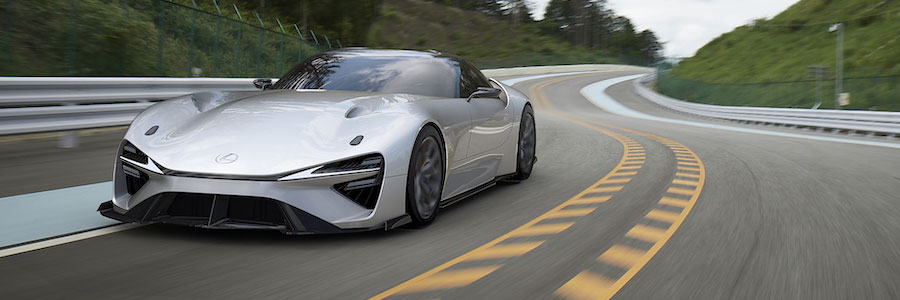Glimpse of future Lexus electric sports car

Lexus has released a gallery of new pictures of its next generation battery electric sports car, and it's going to be a spine-tingling wait if this is the end result.
It is only a concept, that's true.
But if the production version of the high-performance sports car looks anything like the vehicle shown in these images, we're in for a striking new addition to the EV market.
The model was originally announced in December 2021 as part of the electrification plans for the Toyota and Lexus brands. The as yet unnamed sports car will form part of the full electric line-up Lexus is launching between now and 2030.
With the bold proportions and low ride height required for a high-performance sports car, the silver two-seater sits low to the ground with flowing lines from its long nose through to the kind of rear end a Thunderbird would have been proud of. It looks futuristic but it also has hints of the fantastic LFA to tie it in to Lexus' history.

Unfortunately, technical details remain pretty scarce. While we don't know much about the drive unit or battery specifications, we do know what kind of performance to expect.
Lexus has said that it's planning to build a car that will go from zero to 60 mph in the low two-second range.
That would put it around the same as the Tesla Model S Plaid, which itself is about as fast as a supercar. Even more ambitious, though, is the targeted range of 430 miles. If that figure turns out to be accurate, it's well above the average of around 300 miles you can currently expect from a high-end EV. That will be quite an achievement considering that it's a high-performance sports car rather than a family runabout.
For now, those figures are just targets, but Lexus hopes to deliver on its promise with the use of a solid-state battery rather than a lithium-ion battery. There are many technical reasons why these might be a better option, but we're not qualified to explain them all. In simple terms though, solid-state batteries should be lighter and more energy dense than their lithium-based rivals, meaning less weight to carry around, allowing cars to drive further on a single charge, even when you happen to be driving a mind-blowingly quick sports car.
Watch this space to see how close Lexus can get to such an ambitious target.
View our latest blog posts

Categories
Pages
We are a family run business based in rural Worcestershire. Our team of 38 staff are on hand to provide an exceptional service to personal and business customers.
Read More
